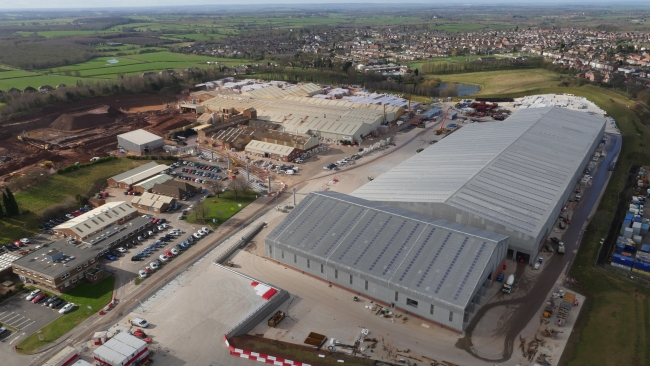2 minute read
Ibstock to invest £45m at West Midlands factory
Ibstock plc – the Leicestershire-based manufacturer of clay bricks and concrete products – has announced a significant factory investment, alongside revenue increases of 5%, reflecting growth across both its clay and concrete divisions.
According to preliminary results released for the year ended 31 December 2019, revenues increased from £391m in 2018 to £409m in 2019. The company is also investing £45m in re-developing and expanding its existing Atlas brick factory in Walsall, with the project to be commissioned in 2022.
Alongside the investment announcement, Ibstock confirmed resilient trading performance for the year, against a backdrop of political and economic uncertainty. Production volumes were also boosted by its new Eclipse brick factory in Leicestershire, which has more than doubled production at the firm’s Leicestershire headquarters since it opened in mid-2018.

Ibstock plc has announced revenue growth of 5% in 2019, along with plans to invest £45m at its Atlas plant in Walsall / Picture: Ibstock plc
Ibstock CEO, Joe Hudson, said: “2019 was a year of progress for Ibstock, as we delivered a resilient trading performance against a backdrop of political and economic uncertainty. We made good progress against our strategic priorities, including measures to enhance production volumes and quality, the strengthening of our executive team and expanding our concrete business, through the acquisition of Longley Concrete.
“Our strong cash generation allowed us to invest in the business and to pay a further supplementary dividend to our shareholders while remaining towards the lower end of our debt guidance range. Today we are announcing a further investment in a new state-of-the-art 80 million per annum clay brick factory to re-develop our Atlas site, in the West Midlands.
“Fundamentals in the UK remain robust, with a structural housing deficit, low interest rates, high employment and the benefit of the Government’s Help-to-Buy scheme all underpinning the market. However, the political uncertainty which caused more subdued market conditions in the second half of 2019 has meant a slower start to 2020. We anticipate that activity levels will improve as the year progresses, and as a result, expect to deliver a stable outcome for the year.”